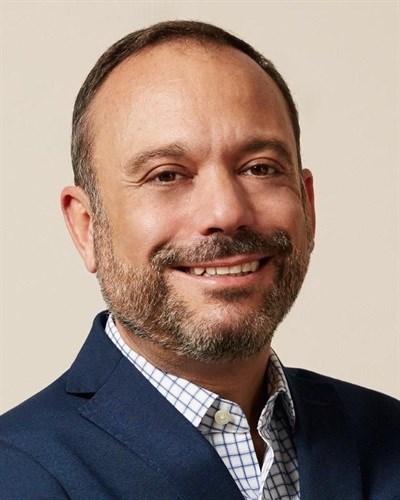The final frontier of the independent agency

So says César Vacchiano, Scopen’s global president and CEO who visited South Africa earlier this year when Scopen was busy with research for the second edition of Agency Scope, a study of insights into the trends of the South African communication industry. The respondents are high-level decision makers in marketing, communications and procurement, from some of the largest and most important marketers in South Africa. Last year the first edition of Agency Scope was completed.
Yet, he says, only 16% of clients use agencies in South Africa to produce work in the region. “The opportunity is there for South African agencies to grow with their clients in Africa, with many of its countries growing fast and needing these services sooner rather than later. With problems in other countries, these African countries with growing economies are looking attractive to overseas companies.”
It surprises him that local agencies are not more proactive in showing off what they can do. “Clients need to take more risks when agencies place ideas and strategies in front of them. In other countries such as Brazil, the UK and India, the creative director and CEO of agencies are also opinion leaders and interviewed by newspapers and industry on change in government and trends. South African agency leaders need to become opinion leaders.”
There is a new breed of independent agencies in South Africa, he adds, that are very good, but clients are not always aware of them or their strengths and capabilities. “Many of these agencies have existed for years, but it is only recently that they are gaining recognition and growing fast.”
Smaller entities, he says are also more integrated and so their managers are involved in the accounts and directly communicate with clients. In big agencies, including network agencies, managers are so busy reporting that they no longer meet with clients or work on accounts. The smaller agencies work on strategy and ideas to deliver work to transform clients, while larger agencies are dealing with reports.
While multinationals are investing a lot in South Africa, local brands are still admired by what they do, with less investment he says. “Think of brands such as FNB and Nandos. It is good to see local brands stand out and being admired by other CMOs and their peers.”
Talking more about the second edition of Agency Scope, he says this study not only gives important insights into the South African communications industry as well as trends that are happening in the country, but allows us to refer back to certain findings from the first study. “With change agency environment happening at such a rapid pace this is important.”
A finding that stood out from the study is that South Africa is particularly behind in the investment in digital, compared to global trends. The reasons for this include technology barriers and the number of people with smart phones, but also because of the strength and power of the ongoing relationships of traditional mediums, such as television. However, he says when the change comes it will feel as if it has changed overnight.

“Creative and media agencies need to attract and hire digital talent, but there are not many universities or places of learning, so that agencies are training their own people, only for the Googles and Facebooks of the world to come and steal them, especially as brands want to have these professionals inhouse.”
Everyone is approaching the same group of people and the result is an inflation of salaries. The challenge for the industry, he says, is to create these places of learning to train these people. “At the same time, the industry needs to create job opportunities in the sector for the younger generations. Agencies also need to be updating themselves constantly – like doctors – to a doctor to keep up with technology.”
It is important that the younger generation understand that technology is just another tool and that they experience how certain things are done and the implications behind what they do and understand the brand and its consumers, or they could do serious damage to that brand very quickly he states.
South Africa is not alone here, he stresses. Globally agencies are finding it difficult to attract the best talent in each discipline to have the capabilities they need to meet the needs of clients.





































